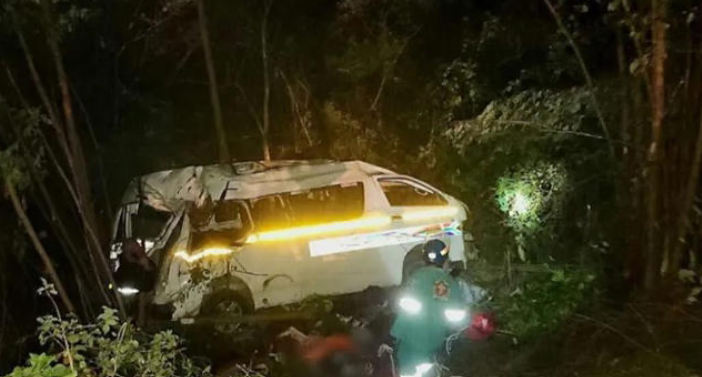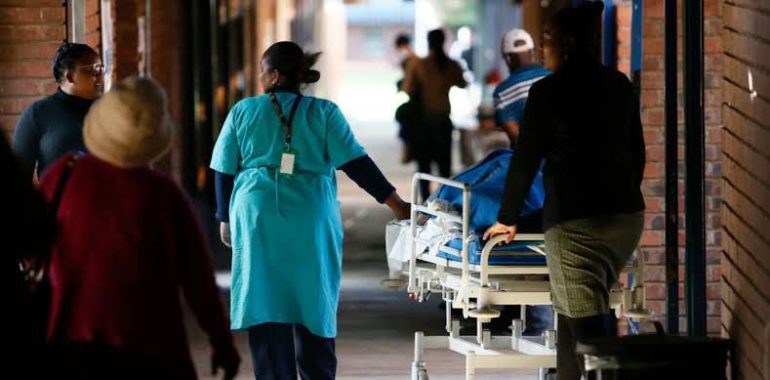David O’Sullivan Shares Memories Of the 1994 Election
By David O’Sullivan
This past week, I was trawling through an old filing cabinet crammed with yellowing documents, dusty boxes of cassettes and piles of unsorted, haphazard photographs. I was searching for pictures taken on 27 April 1994 when, while working as a freelancer for a number of international radio networks (while pretending to be an articled clerk at Webber Wentzel), I ended up in Soweto in the late afternoon at a polling booth with a mercifully short queue. That’s where I voted in the first democratic election.
It was the end of a long day which had started in a mood of uncertainty and trepidation in the early Autumn chill outside the George Goch hostel south-east of the Joburg CBD. Since it was a public holiday, there was no need for me to put on my polyester suit and thin tie and report for duty at Webber Wentzel. I was free to pursue my freelance career as a radio correspondent for the London-based Independent Radio News Network (IRN), for whom I had been the South African correspondent for over five years starting in my days at Capital Radio.
The 1994 election day is now best remembered for the long queues of patient voters who ensured that South Africa defied all expectations and made the transition from a minority totalitarian regime to democracy without descending to a chaotic civil war. What tends to be forgotten is how volatile the country was at that time. Political violence was rife and I had spent much of my time covering the bloodshed, massacres and bomb blasts that dominated South African life.
On the morning of the election, the threat of right-wing violence was very real. The Afrikaner Weerstandsbeweging (AWB) had vowed to intensify a bombing campaign to disrupt the poll. The bombs started exploding two weeks earlier and continued at regular intervals. It was impossible to know where they would strike. There were attacks in what was then Western Transvaal (now North West). There were explosions at an Independent Electoral Commission office in Braamfontein, at taxi ranks in Germiston, Westonaria and Randfontein, at a restaurant in Pretoria and at a fuel pipeline in the Free State. I don’t remember the exact number of dead and injured.
The biggest attack came on the Sunday before the election when a massive 70kg car bomb exploded in the Johannesburg city centre on the corner of Bree and Von Wielligh Streets. It was one of the biggest terror attacks in the country. 9 people were killed and 92 others were injured in the blast which left a huge crater in the road and shattered windows far and wide. The noise was so loud that residents to the north of the city thought a bomb had gone off in their neighbourhood, leading to some confusion about how many bombs there’d been. Had the bomb gone off later in the week when the streets were busier, the death toll would have been far higher.
There was every expectation that the right-wing bombing campaign would intensify on election day. In that fearful climate, and with animosity still simmering between the ANC and the IFP, the first democratic elections began.
Anticipating where the story is likely to happen is always a combination of guess work and good luck. Thus far in my career, I hadn’t done too badly in choosing my locations. On Election Day, I decided to head off to a potentially volatile place. I opted for an Inkatha stronghold, given that the Inkatha Freedom Party had decided to take part in the elections just weeks earlier. Even then some Inkatha members were against the decision, angry that not all their demands for inclusion on the ballot had been met.
A few days earlier in Tokoza on the East Rand, two IFP supporters had been shot dead by unknown attackers as they were returning from a rally. In Durban an attack on a bus carrying ANC supporters to a rally addressed by Nelson Mandela had caused significant casualties. Tension was high and I figured the residents of George Goch hostel might give us clues as to what could happen later in the day. It seemed as good a place as any to start the day.
I headed off to the drab, depressing hostel complex with a couple of other freelance mates early that morning. The place was already buzzing with activity when we arrived. But far from the anticipated tension and anger, we found the hostel residents in a buoyant mood, getting ready to head out to their nearest polling station when the doors opened at 7am. We hung around for a while, just to be sure we weren’t going to miss a story. Little did we know that we actually had the beginnings of the real story of that day – the start of the peaceful, patient ballot.
Our pagers started beeping with news alerts as the various political leaders started casting their ballots. Nelson Mandela was at the Ohlange High School in Inanda, outside Durban. The story was happening far away from where we were.
And then an alert from a police spokesman, Captain Wikus Weber. A bomb had gone off at Johannesburg International Airport. It had to be the right-wing again. We rushed to airport, but were too late to see anything. The whole area was cordoned off by police and we got nowhere near the blast scene. We relied on police updates to file our stories. It turned out that a white man had driven a car up the ramp in front of international departures and ran from the vehicle as it exploded. The blast caused extensive damage and injured about 20 people.
We could only anticipate that this was the first of many more attacks on the elections. But as morning passed, there were no further reports of violence. I met up with a few foreign correspondents who had flown in to cover the elections. One of them was a fabulous journalist named George Matheson, who worked for IRN in London, as well as two Swedish journalists from Aftonbladet who were staying in my garden cottage in Westdene.
This was George’s second visit to South Africa. On his first occasion, I had picked him up at the airport, dropped his bags at his Braamfontein hotel, and headed straight to Soweto. We had seen smoke billowing from an area in Diepkloof and headed there. As we were driving down a main road, I saw a group of people stoning vehicles ahead of us. We were heading straight into the danger. In my rear view mirror, I saw a military troop transport carrier known as a Casspir approaching. As it passed me on my left, I tucked in next to it and used it as a shield as we drove past the stone-throwers. We could hear the rocks thudding against the Casspir, leaving us unscathed.
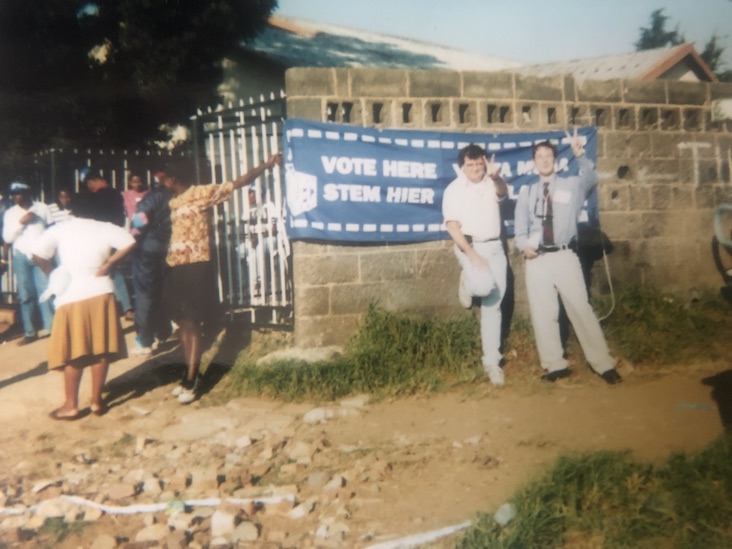
Shortly afterwards we had come across a gun battle between police and local activists quite near the old FNB Stadium. So within two hours after first arriving in South Africa, George had survived being stoned and was now dodging live ammunition and rubber bullets. To round off a memorable morning for him, we got caught in a cloud of teargas and decided to get the hell out of Soweto. George dined out on that story. When he saw me on that Election Day morning, he was laughing nervously. “I don’t want another day like that, OK?”
It wasn’t a day like that. It was worth remembering what we had been through and the level of violence that could have happened. But it didn’t. The rest of that day is a bit of a blur. I remember that we drove around the city, randomly selecting polling stations and witnessing the same story wherever we went – the long queues of patient voters of all races.
READ: Time for Africa to refashion its democratic model
I had my ID book in my pocket and tried to vote at the various polling stations we visited. But my foreign colleagues were impatient to keep moving and there was no time to vote.
Eventually, we ended up in Soweto. I can’t remember precisely where we found a polling station to talk to the local residents, getting colour for the latest round of stories. George pointed out the queue was short. So I finally had my chance to vote.
Casting my ballot in Soweto was particularly poignant. I knew it would be a once-off, that next time I would be voting where I lived. But the rules were different for that inaugural election. Everything was different. When I first started coming into Soweto to visit my Rhodes University friend Mandla Mashigo in the early 1980s, I had to do so illegally because I didn’t have a permit. I had witnessed so much strife in Soweto in the past 8 years. I had worked in the township through the dark days of the State of Emergency when we could report very little of the violence we had seen. Now, free from any concerns that I would be breaking the law, I was in Soweto playing my small part in ushering the country into the new democracy. I made myself savour the moment as I dropped my ballot into the box.
Then George said, “where to next?”. The moment was over and we headed off to the next polling station. No further bombs went off and we didn’t get shot at or teargassed. South Africans had pulled off a miracle. Against all the odds.
David O’Sulllivan is the host of Breakfast With David on Kaya 959, Monday – Thursday.
Written by: Zuko
1994 Election 27 April 1994 Breakfast with David David O Sullivan FNB Stadium Kaya 959
Similar posts
MORE ARTICLES

In Pictures: Mzansi Celebs serve style and drama at Durban July 2025
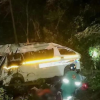
Five killed in KZN crash allegedly caused by Polo driver

From Benin to the world: Kidjo makes history as first black African on Hollywood Walk of Fame

Drama, cheating and Surprise guest: RHOD reunion delivers shocking revelations
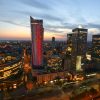
Why Waterfall Estate’s 99-year lease is practically forever
QUICK LINKS
UpComing Shows

Touch of Soul
With T Bose
Kaya 959 takes back Sundays with A Touch of Soul, the only show bringing you soul and RnB music that touches your mind, body and spirit. The Best T in the City, T-bose takes you back to a time when music was made to last. A Touch of Soul is the perfect wind-down to your weekend. Sundays 14h00 to 18h00.
close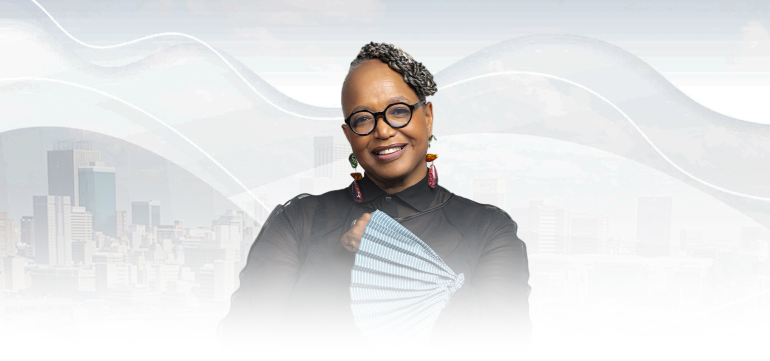
The Jazz Standard
with Brenda Sisane
The Jazz Standard with Brenda Sisane. Sunday's 12:00-15:00.
close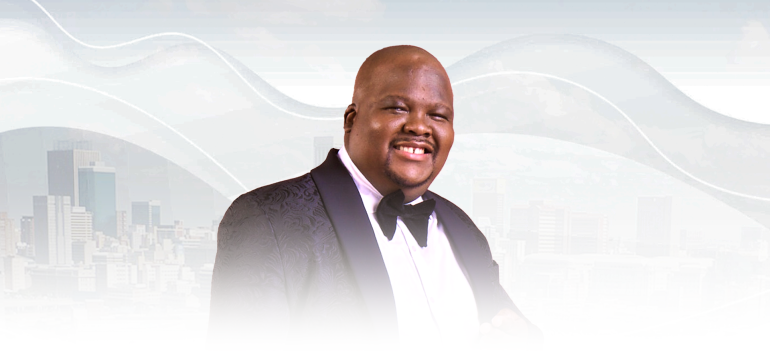
Spade of Hearts
With Xola Dlwati
WITH XOLA DLWATI: SATURDAYS 12:00 -15:00 Spade of Hearts is a fuse of love and soulful sounds, pulling at your heartstrings. Tune in for songs that will take you down memory lane. It is the sound that once dominated your playlist. It airs Sundays 12:00 – 15:00.
close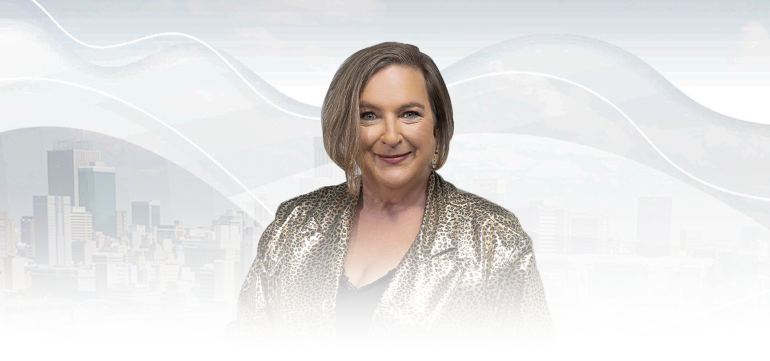
The World Show
With Nicky B
The World Show is informative, expansive, and largely pan-African. This is a musical journey that bridges generations and genres, travelling across continents and timelines, with in-depth interviews and features. ‘The World Show’ is a four-hour global journey through sound – featuring the freshest tracks from home and afar.
close
959 Music Weekdays
Kaya 959 Hits
Real. Familiar. Memorable. Kaya 959 brings you the music you know and love from our playlist. Uninterrupted. Thursdays 20h00 to 21h00
closeConnect with Kaya 959
DownLoad Our Mobile App
© 2025 Kaya 959 | On The Street On The Air


